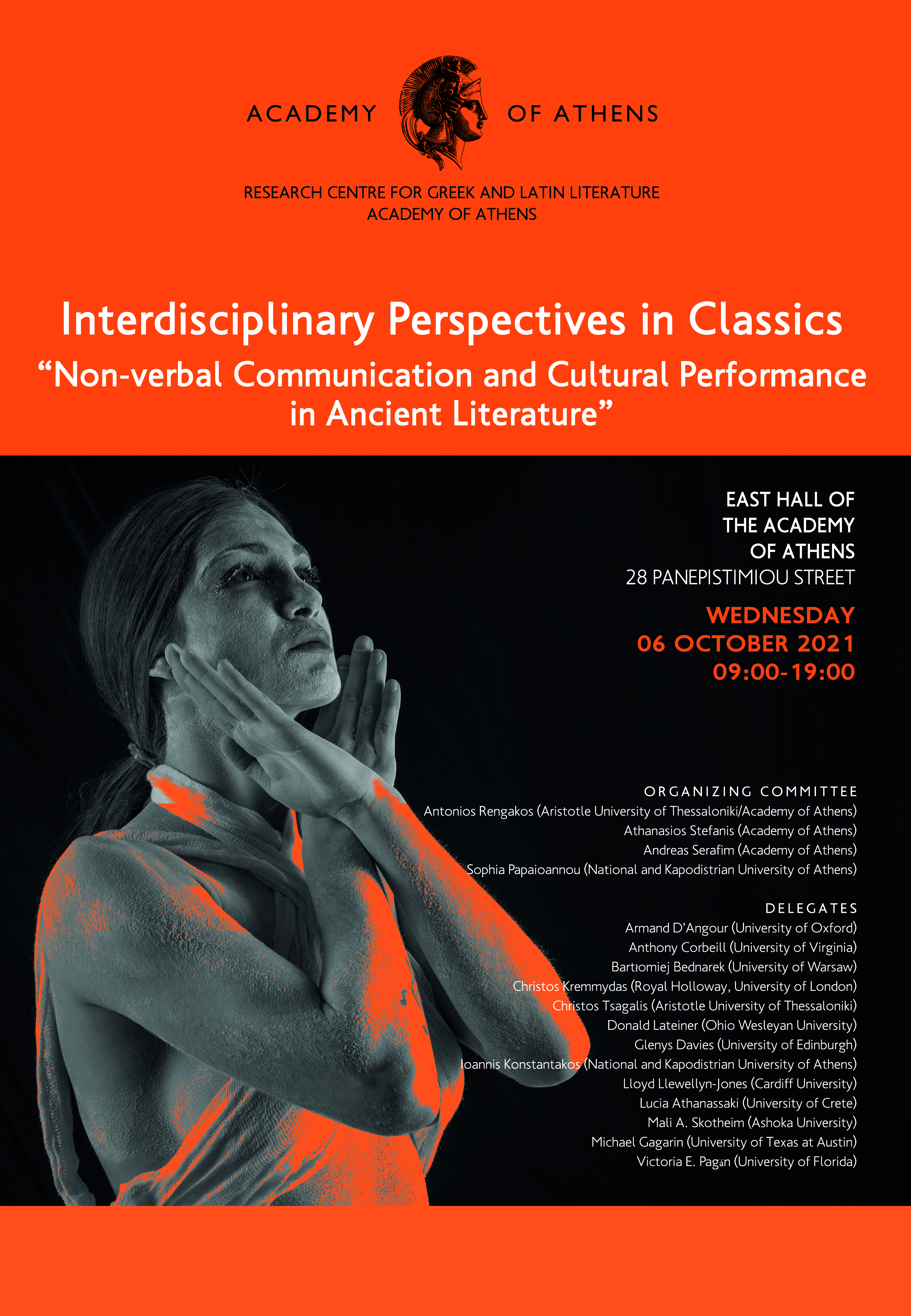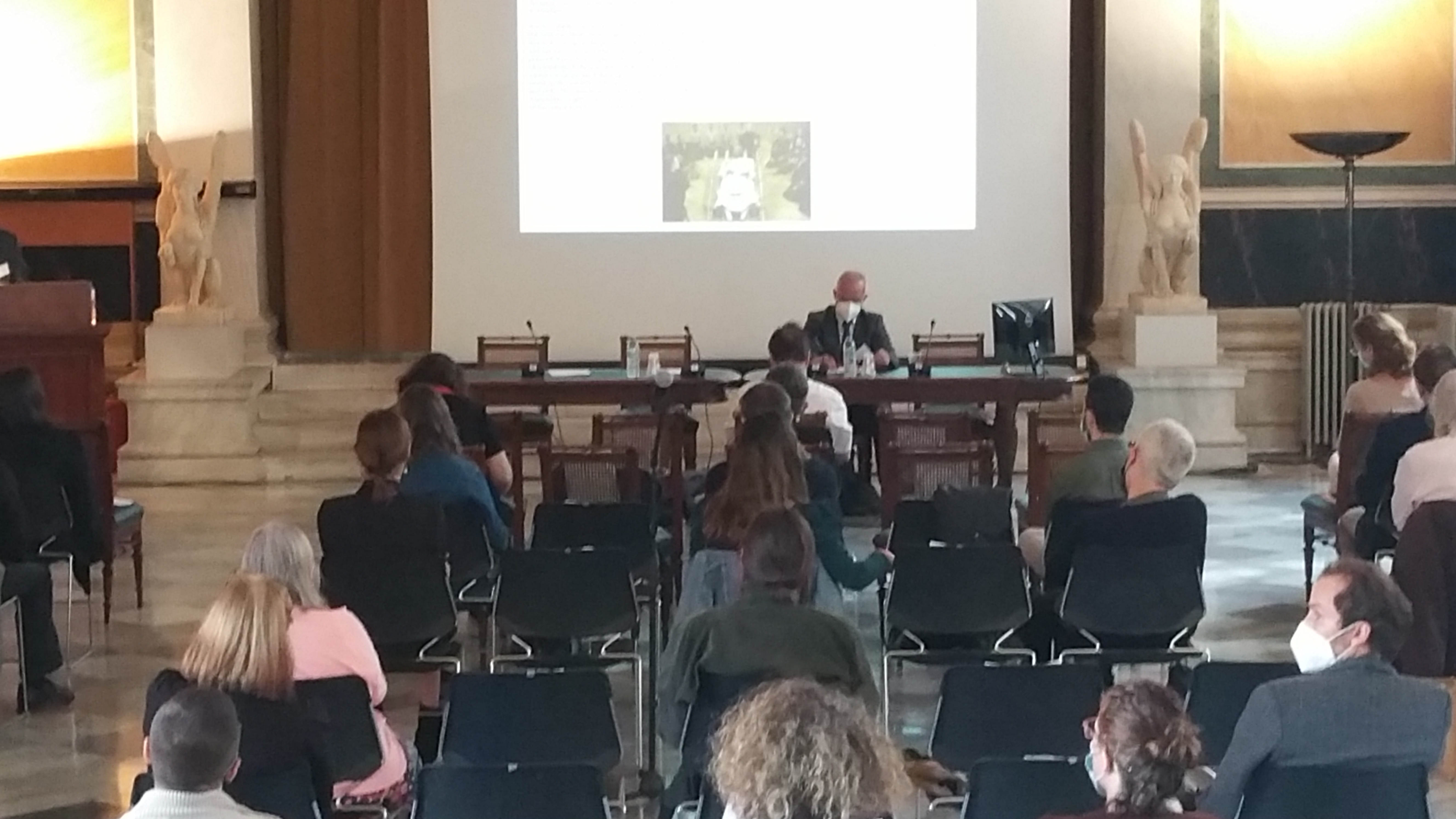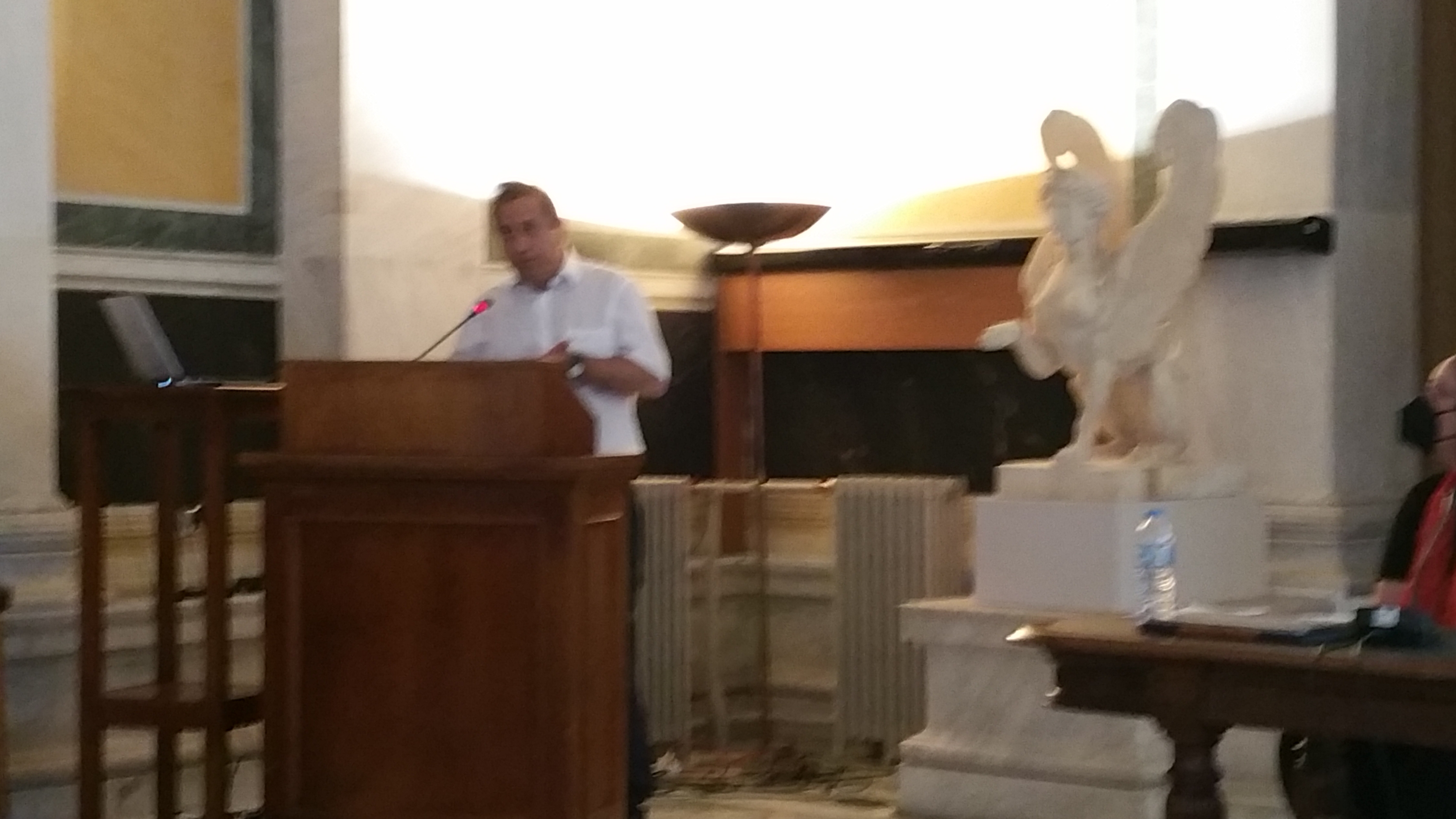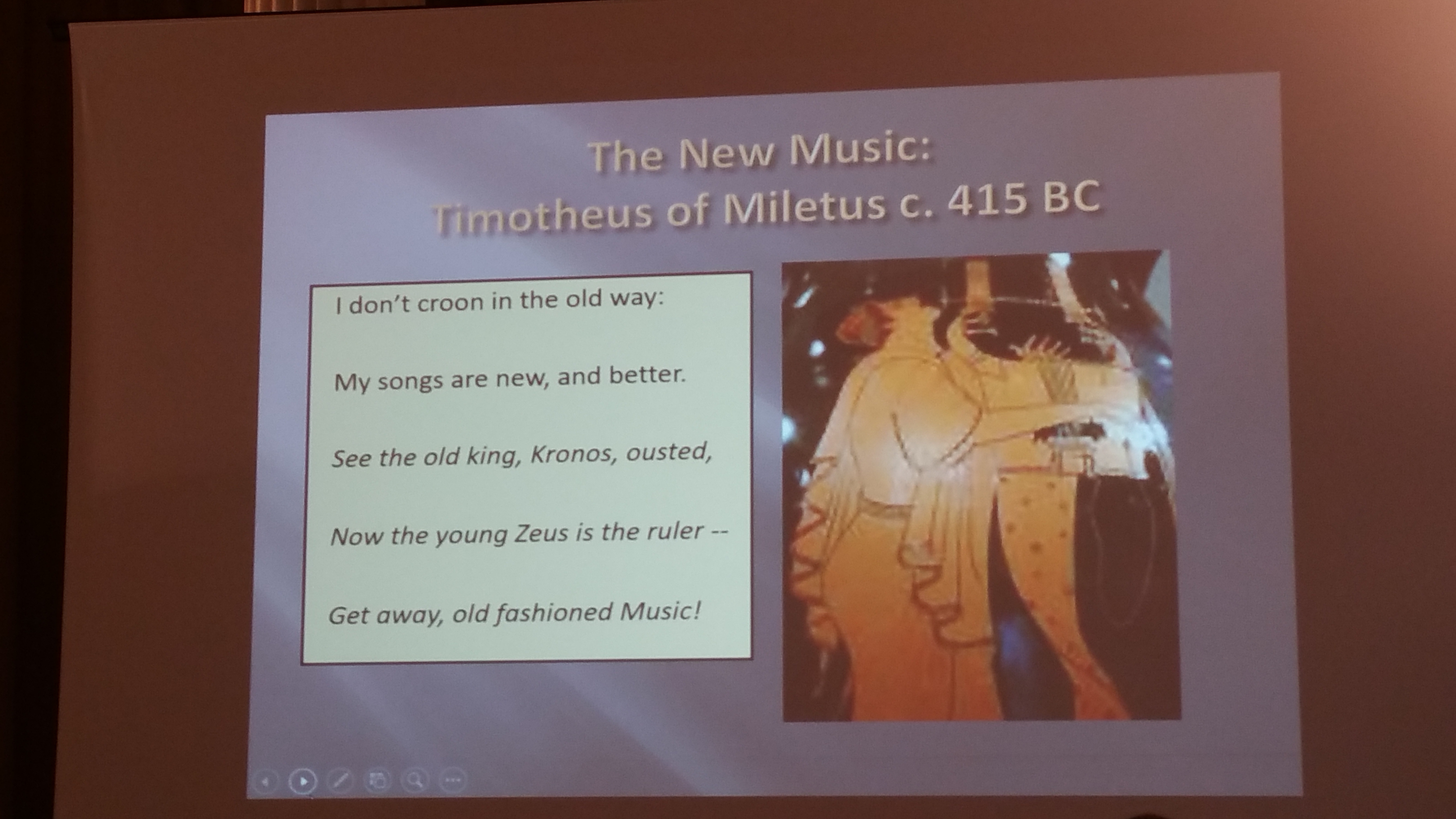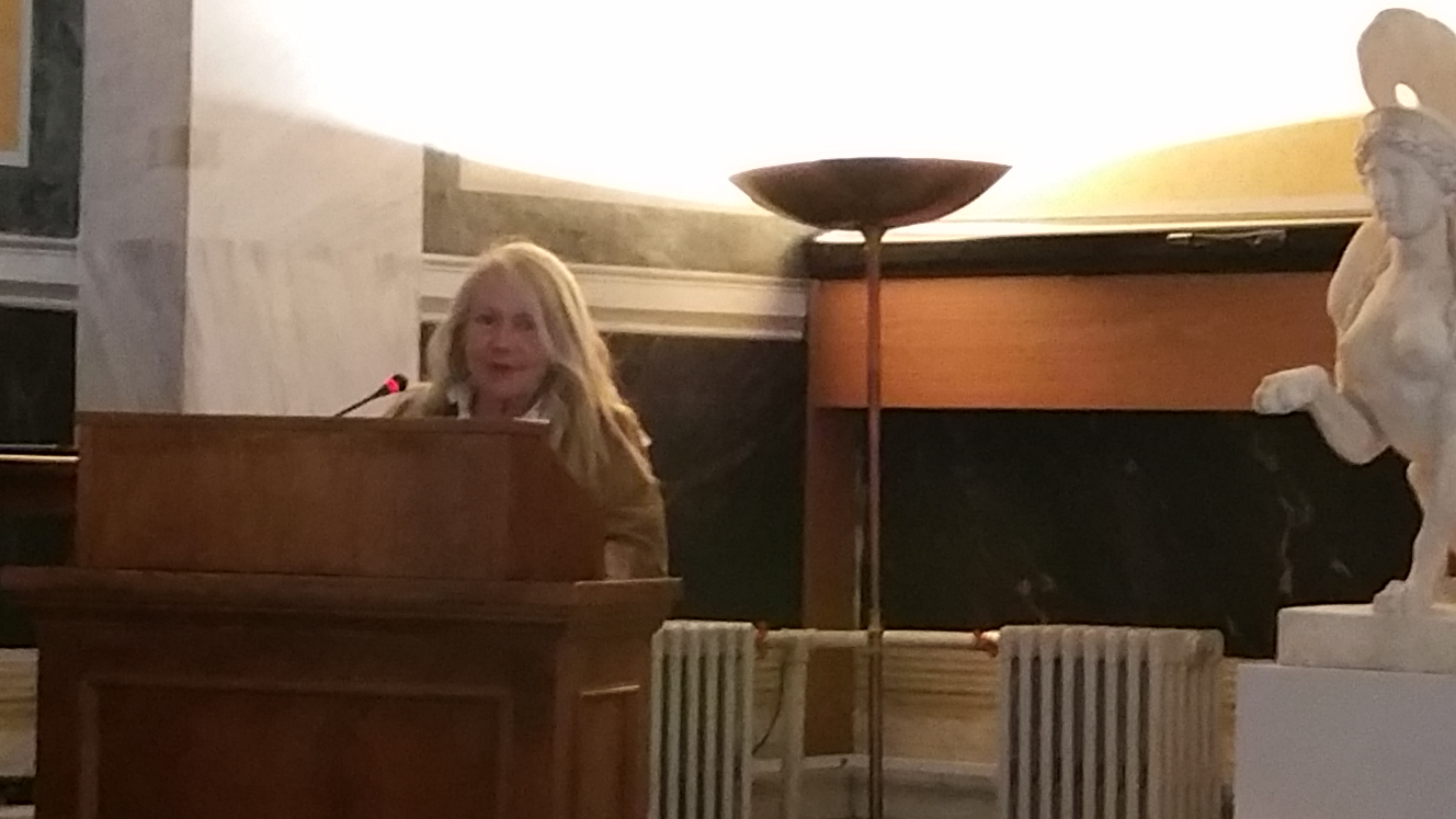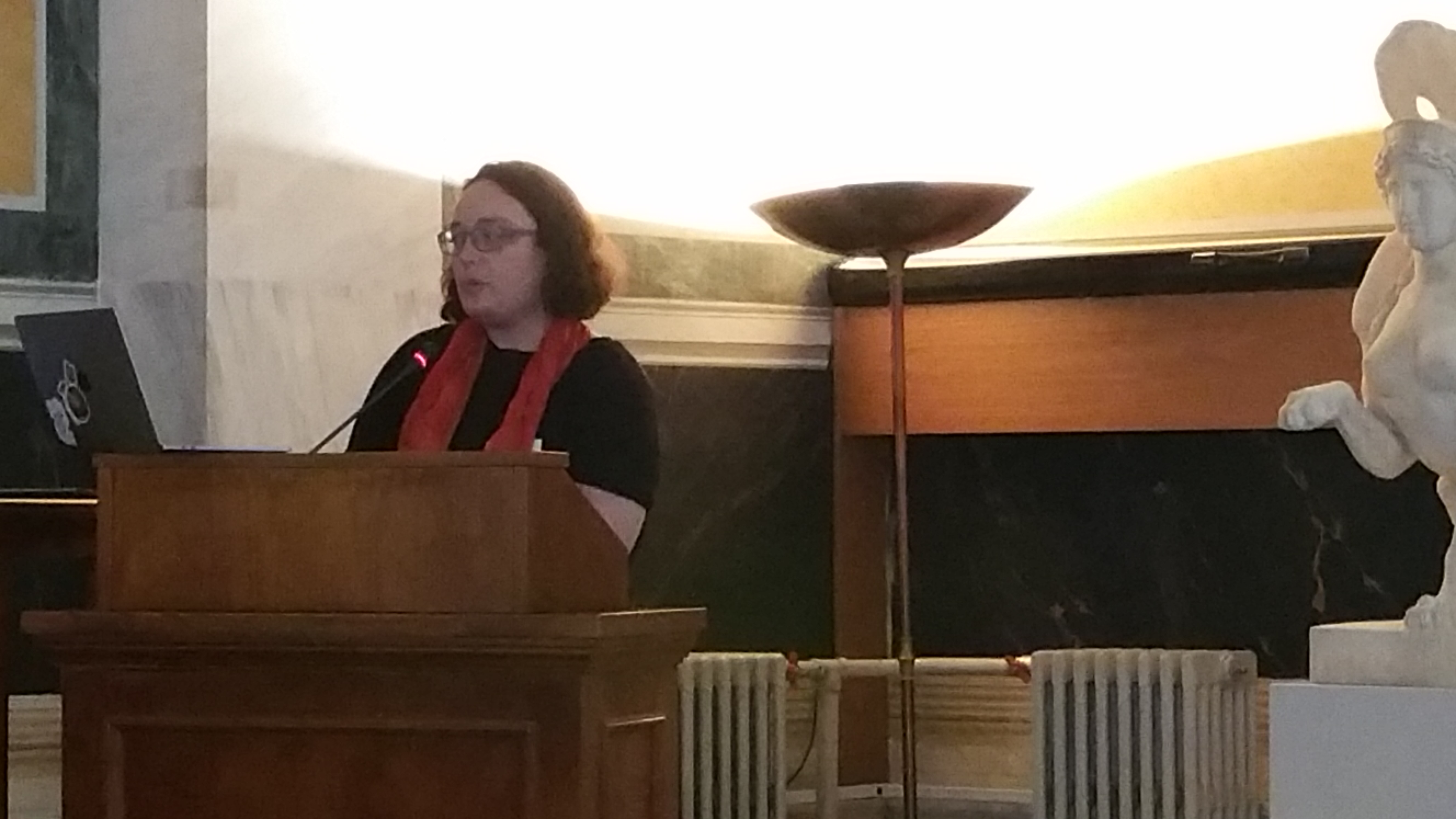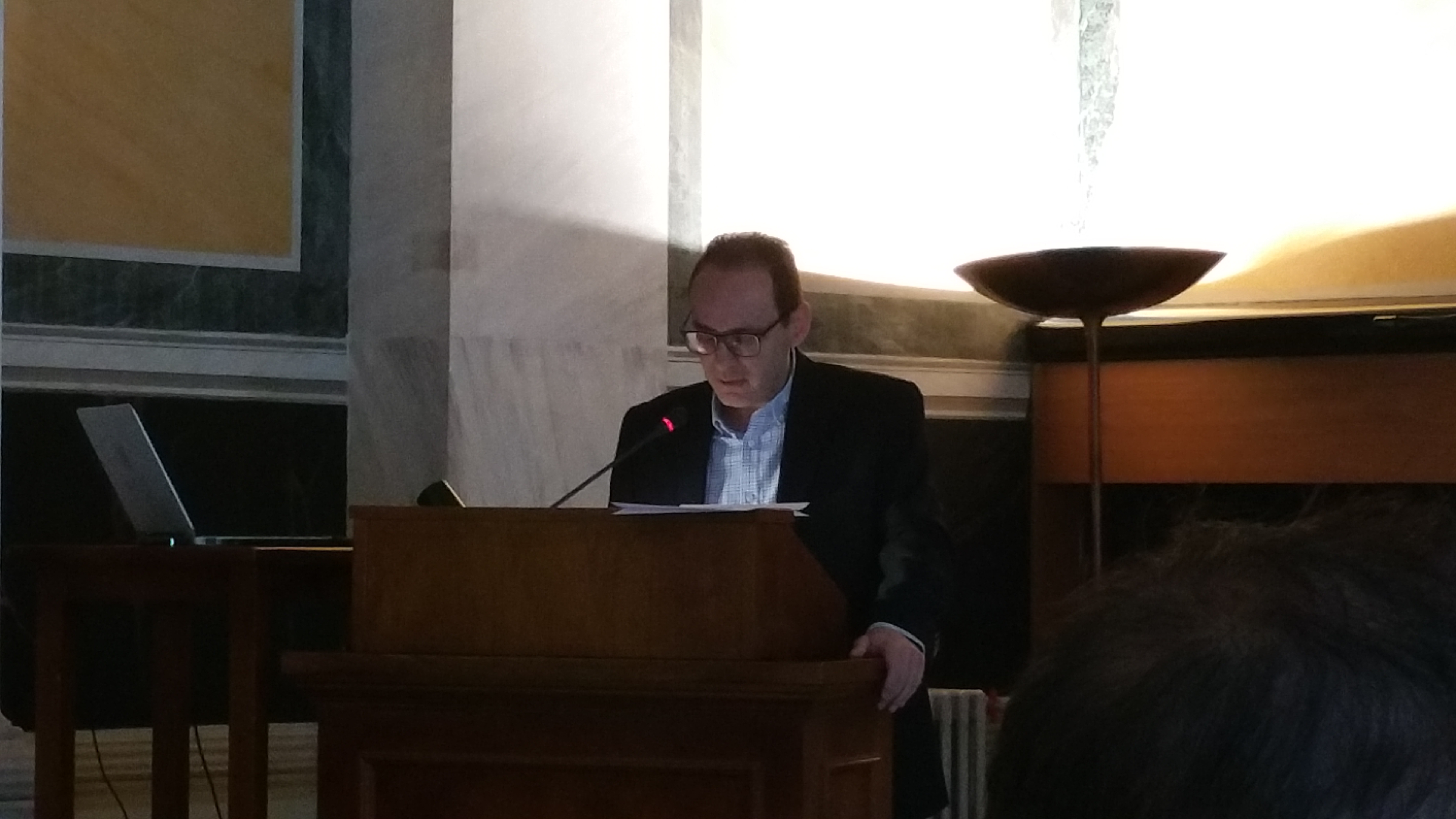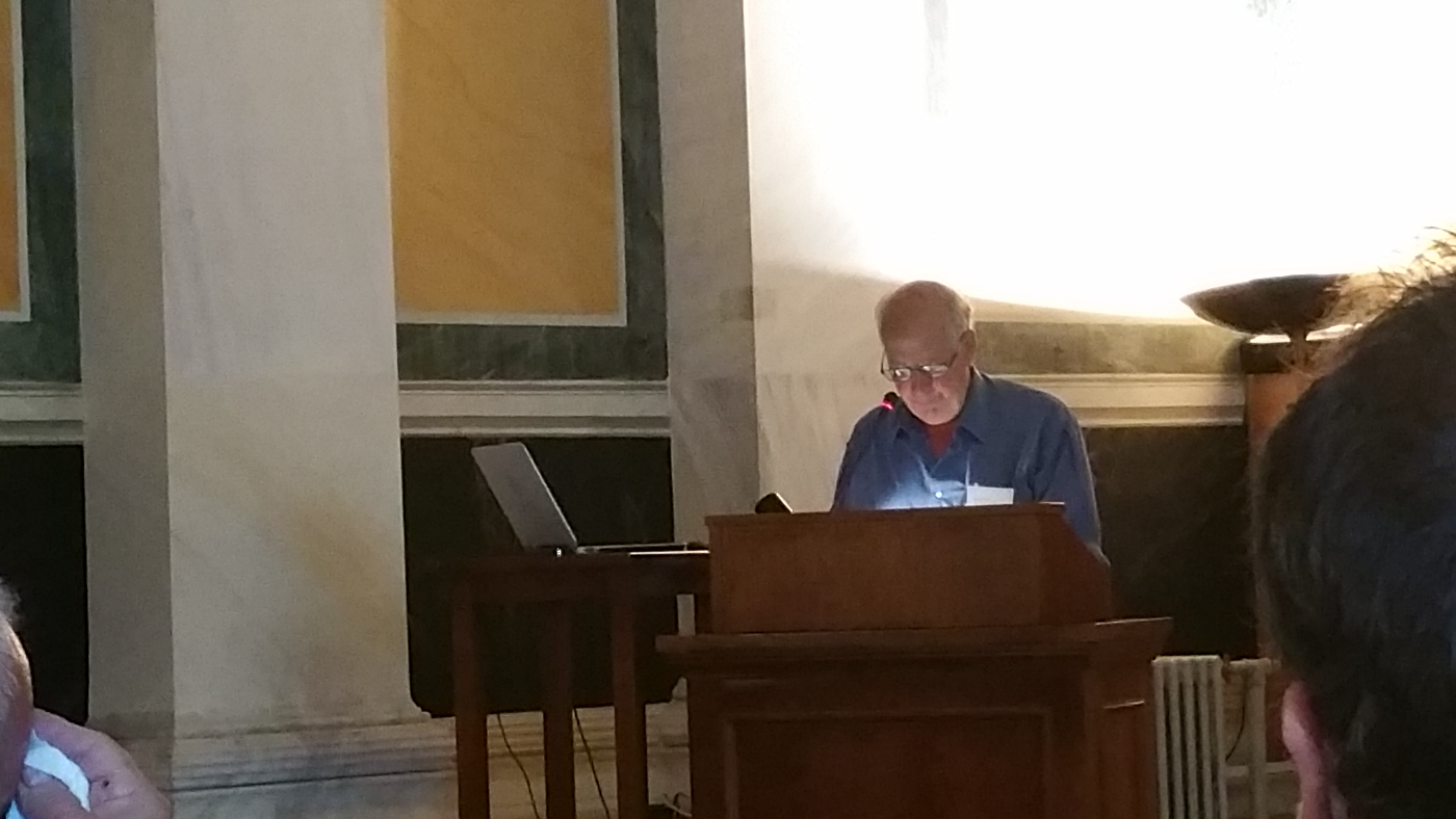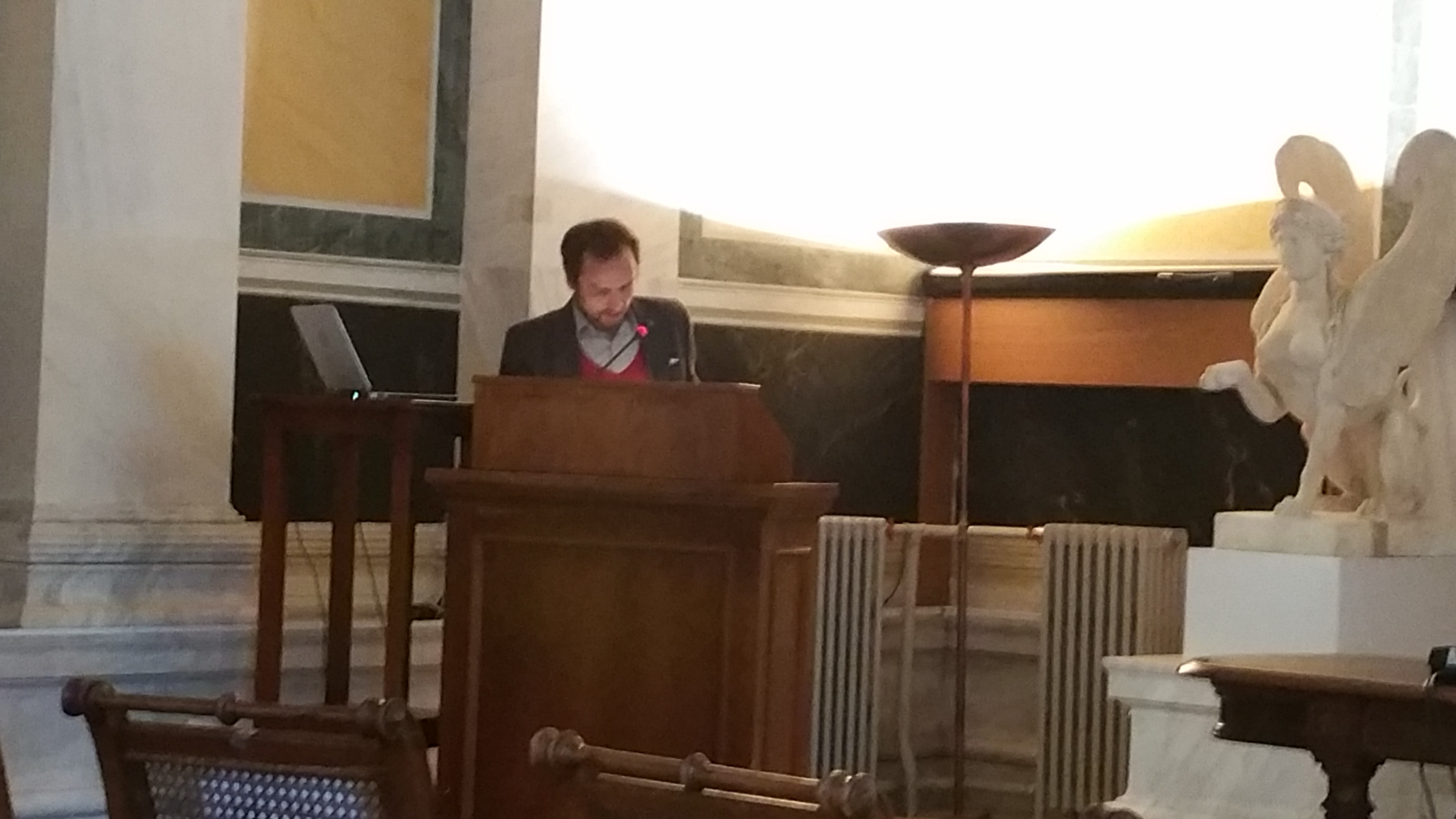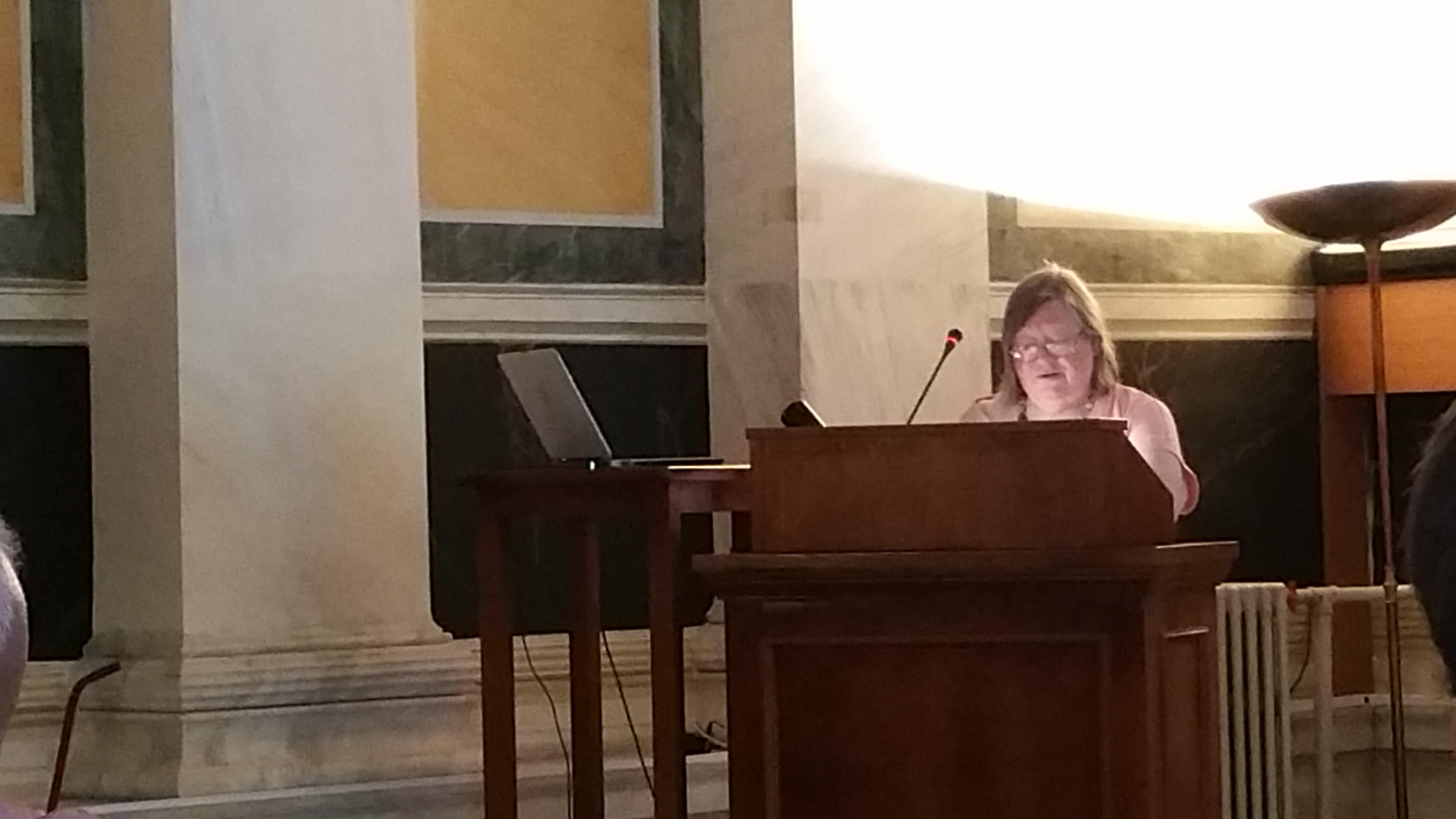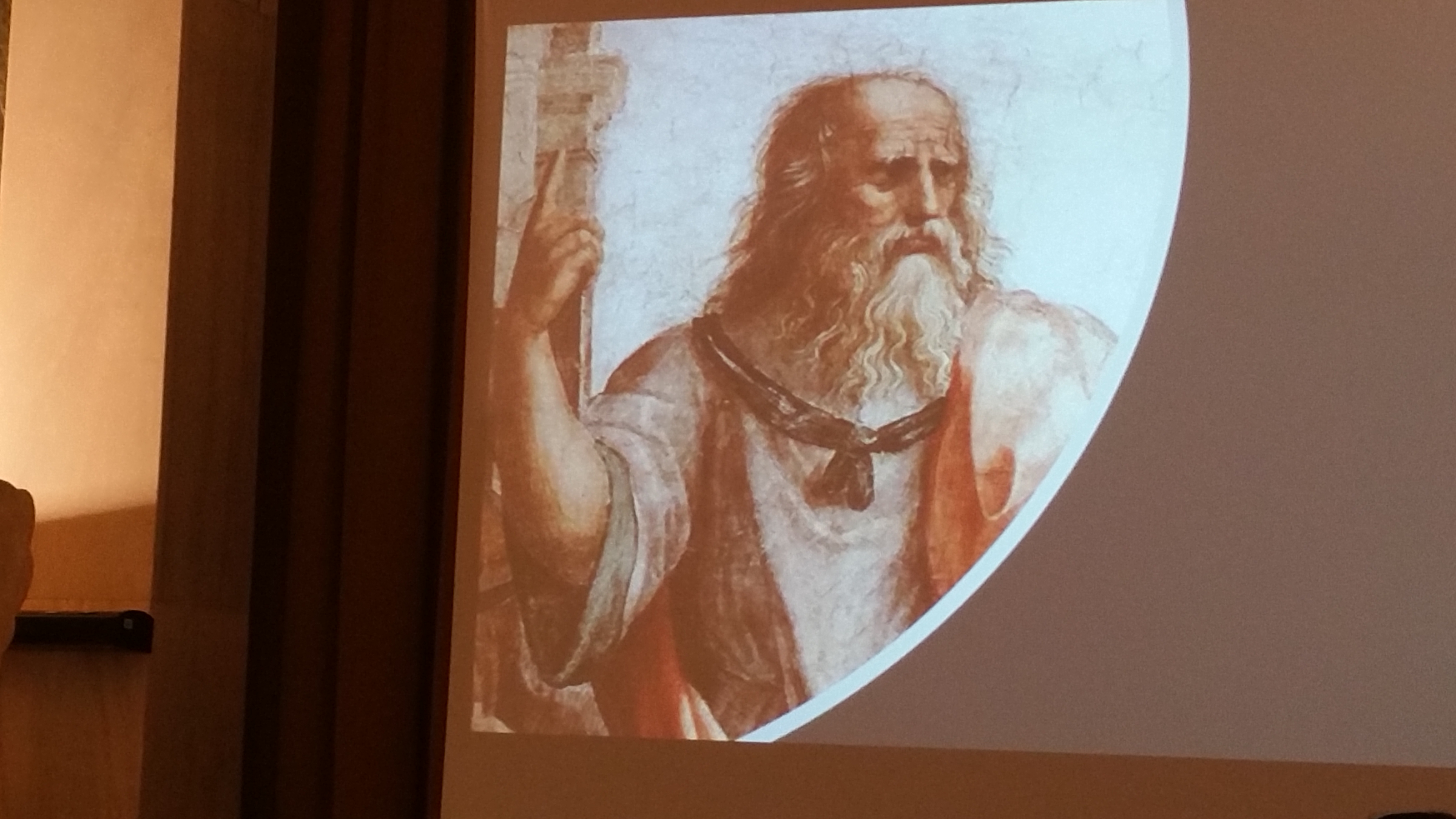- Η Ακαδημία
- Ίδρυση
- Μέλη
- Μέγαρο
- Οργάνωση
- Διοίκηση - Υπηρεσίες
- Διοίκηση
- Διεύθυνση Διοικητικών Υπηρεσιών
- Διεύθυνση Οικονομικών Υπηρεσιών
- Διεύθυνση Διαχείρισης Κληροδοτημάτων
- Διεύθυνση Περιουσίας
- Διεύθυνση Βιβλιοθήκης
- Αυτοτελές Τμήμα Εκδόσεως Δημοσιευμάτων
- Αυτοτελές Τμήμα Τεχνικών Υπηρεσιών
- Αυτοτελές Γραφείο Δημοσίων Σχέσεων, Εθιμοτυπίας και Πολιτιστικών Εκδηλώσεων
- Αυτοτελές Γραφείο Μηχανογραφήσεως - Πληροφορικής
- Κανονισμός
- Ευεργέτες- Δωρητές -Αθλοθέτες
- Εποπτευόμενα Ιδρύματα
- Διεθνείς Ενώσεις
- Επιτροπή Ισότητας των Φύλων
- Έρευνα
- Ερευνητικά Κέντρα
- Κέντρο Ερεύνης των Νεοελληνικών Διαλέκτων και Ιδιωμάτων Ι.Λ.Ν.Ε
- Κέντρον Ερεύνης της Ελληνικής Λαογραφίας
- Κέντρον Ερεύνης του Μεσαιωνικού και Νέου Ελληνισμού
- Κέντρον Ερεύνης της Ιστορίας του Ελληνικού Δικαίου
- Κέντρον Ερεύνης της Ιστορίας του Νεωτέρου Ελληνισμού
- Κέντρον Ερεύνης της Ελληνικής και Λατινικής Γραμματείας
- Κέντρο Ερευνών Αστρονομίας και Εφηρμοσμένων Μαθηματικών
- Κέντρον Ερεύνης της Ελληνικής Φιλοσοφίας
- Κέντρον Ερεύνης Επιστημονικών Όρων και Νεολογισμών
- Κέντρον Ερεύνης Φυσικής της Ατμοσφαίρας και Κλιματολογίας
- Κέντρον Ερεύνης της Αρχαιότητος
- Κέντρον Ερεύνης της Ελληνικής Κοινωνίας
- Κέντρο Έρευνας της Βυζαντινής και Μεταβυζαντινής Τέχνης
- Κέντρο Ερευνών Θεωρητικών και Εφηρμοσμένων Μαθηματικών
- Κέντρο Διαστημικής Έρευνας και Τεχνολογίας
- Κέντρο Έρευνας και Εκπαίδευσης στη Δημόσια Υγεία
- Ερευνητικά Γραφεία
- Ερευνητικά Προγράμματα
- Ερευνητικές Υποδομές
- Επιτροπή Ερευνών
- Επιστημονικό Συμβούλιο (Ε.Σ.Ε.Κ.Α.Α)
- Ερευνητικά Κέντρα
- Δημοσιεύματα
- Έντυπα
- Πρακτικά
- Επετηρίδες
- Μνημεία της Ελληνικής Ιστορίας
- Ελληνική βιβλιοθήκη
- Διάφορες εκδόσεις
- Δημοσιεύματα Κέντρων και Γραφείων Ερευνών
- Εκδόσεις του Ιδρύματος Κώστα και Ελένης Ουράνη
- Εκδόσεις της Επιτροπής Ερευνών
- Εκδόσεις υπό την Αιγίδα της Διεθνούς Ενώσεως Κλασικής Αρχαιολογίας και της Διεθνούς Ενώσεως Ακαδημιών
- Ηλεκτρονικά
- Το Βιβλιοπωλείο της Ακαδημίας Αθηνών
- Έντυπα
- Βραβεία
- Υποτροφίες
- Βιβλιοθήκη
- Ανακοινώσεις
- Ψηφιακή Ακαδημία
Interdisciplinary Perspectives in Classics: Annual Conferences
The Research Centre for Greek and Latin Literature of the Academy of Athens is establishing a series of one-day annual conferences, entitled Interdisciplinary Perspectives in Classics. The aim is to bring together, at the Academy of Athens, the oldest and most prestigious research institution of Greece, researchers from all over the world to discuss, through the lens of interdisciplinary scholarship, a variety of topics that shed light on the cultural workings in ancient Greece and Rome. The new series of conferences will give the floor not only to classicists, but also to scholars from several other disciplines, whose theories can shed welcome fresh light on the study of antiquity.
1st Annual Conference: "Non-verbal communication and cultural performance in ancient literature"
East Hall of the Academy of Athens
28 Panepistimiou Street
Wednesday, 06 October 2021, 09:00-19:00
The conference recording is available here.
The first conference in the series of Interdisciplinary Perspectives in Classics is about non-verbal communication, a term that refers to the (conscious, intentional and voluntary or otherwise) ways of communicating without the use of language, and conveying implicit or explicit messages to the audience. For Donald Lateiner, non-verbal communication is “a useful umbrella, or covering term for all human acts and responses capable of communication – conscious, intentional, voluntary, or otherwise – and including gesture, posture, body-talk, paralinguistics, chronemics and proxemics. Events include somatic, vocal (non-verbal), dermal, thermal, and olfactory messages, and experiences” (Sardonic Smile, p. xix). Non-verbal communication has received increased attention and entered the scene of humanistic sciences: psychology, anthropology and sociology, performance studies, body culture studies and, of course, classics. René Descartes, Charles Darwin, Marcel Mauss, Maurice Merleau-Ponty, Simone de Beauvoir, Monique Wittig Michel Foucault and classicists, such as Donald Lateiner, Alan Boegehold, Anthony Corbeill, Douglas Cairns and James Porter, are only a few who explored aspects, and helped enhance our knowledge and understanding, of non-verbal communication in varied historical and cultural contexts.
The study of non-verbal communication is an essential component in any attempt to reconstruct, understand and interpret the systems of cultural, literary, institutional, moral and inter-personal communication in Greco-Roman antiquity. Information about non-verbal communication sheds new light on the rhetorical strategy and the communication techniques of public speakers, and how these are used to persuade the masses in legal and political meetings. It also helps us better understand performance and cultural conduct in the contexts and institutional settings of verse and prose genres (e.g. theatre, symposia, religious festivals, athletic and musical contests). We can, therefore, learn a lot about the ancient civic/political communities themselves: what its people believed about the physiognomic, moral and behavioural virtues of the ideal citizen, sexuality, cultural performances and obligations towards the community (e.g. military service and the defence of the city on the battlefield).
Conference papers explore aspects of non-verbal communication that include, but are not limited to, the references made in the first paragraph of this description. Non-verbal utterances or any other mark or feature of human physiology and physicality, including vocality (e.g. articulation, pitch, rhythm and pace), gesticulation, religious and cultural kinesics (e.g. supplication, hand-shaking), aesthetics (e.g. cosmetics and attire), and semi-reflexive bodily actions (e.g. sneezing, spitting and coughing), which allow identification of an individual’s character, state of emotion, sexuality and contextual (i.e. political, social, economic and moral) mood, are topics of importance for the purposes of this conference. Topics also include references to mime, animals and how texts describe the sounds of physical disasters (e.g. earthquakes). Our approaches to non-verbal communication are informed by interdisciplinary themes and theories, e.g. emotions, psychology, cognitive studies, anthropology, critical discourse analysis and sociolinguistics.
Organizing committee
Antonios Rengakos (Aristotle University of Thessaloniki/Academy of Athens)
Athanasios Stefanis (Academy of Athens)
Andreas Serafim (Academy of Athens)
Sophia Papaioannou (National and Kapodistrian University of Athens)
Conference delegates
Armand D’Angour (University of Oxford)
Anthony Corbeill (University of Virginia)
Bartłomiej Bednarek (University of Warsaw)
Christos Kremmydas (Royal Holloway, University of London)
Christos Tsagalis (Aristotle University of Thessaloniki)
Donald Lateiner (Ohio Wesleyan University)
Glenys Davies (University of Edinburgh)
Ioannis Konstantakos (National and Kapodistrian University of Athens)
Lloyd Llewellyn-Jones (Cardiff University)
Lucia Athanassaki (University of Crete)
Mali A. Skotheim (Ashoka University)
Michael Gagarin (University of Texas at Austin)
Victoria E. Pagán (University of Florida)


